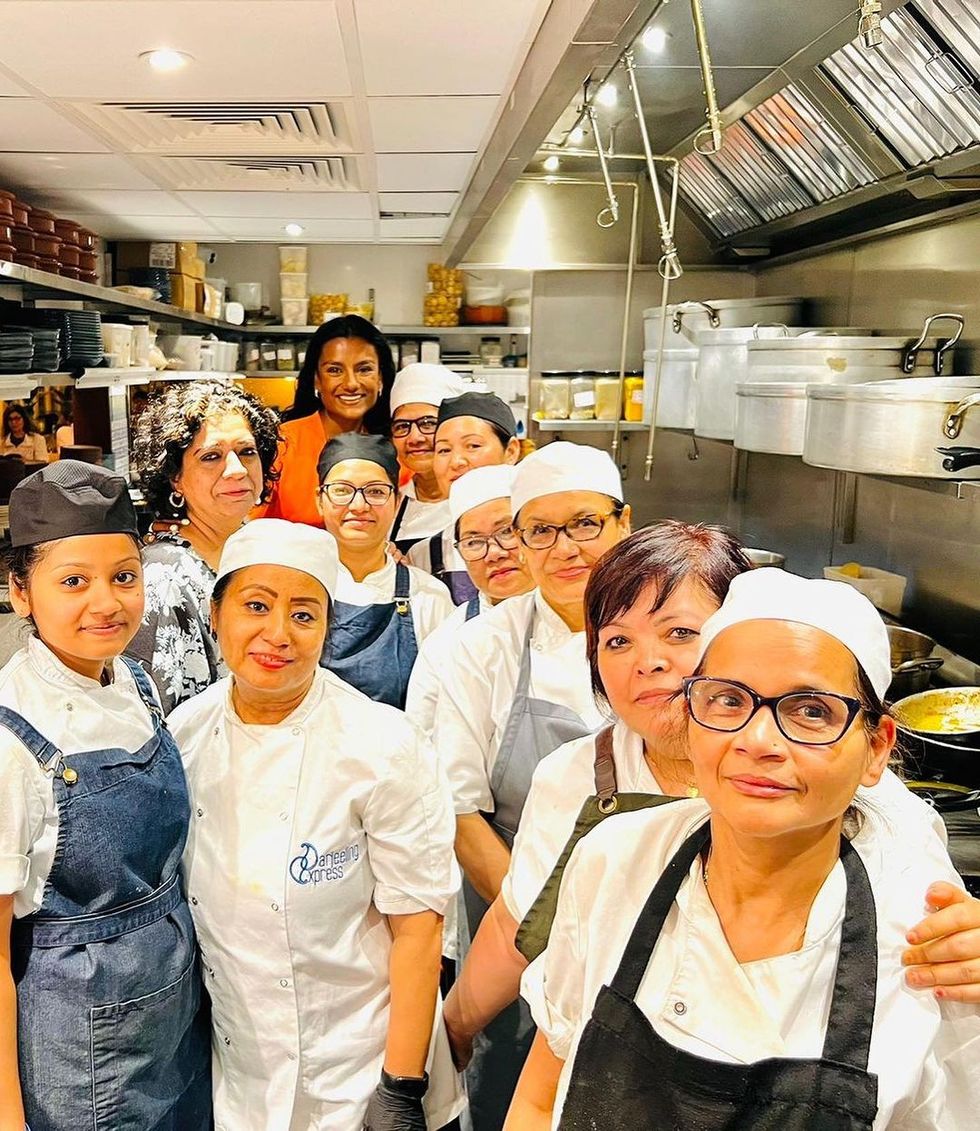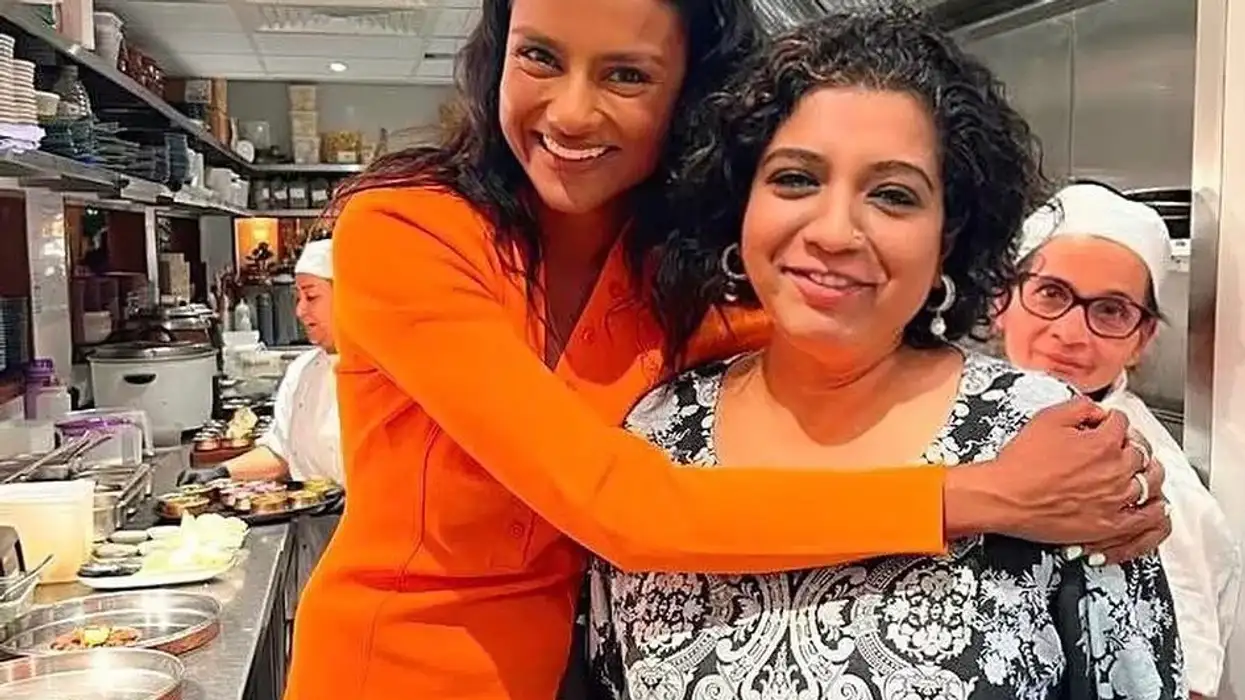Bridgerton star Simone Ashley recently enjoyed a meal at Darjeeling Express, a restaurant in Covent Garden, London. The wildly popular restaurant is owned by Kolkata-born British chef and restaurateur Asma Khan and is run by nine women.
Ashley, who became a household name after playing Kate Sharma in Netflix’s globally popular series Bridgerton, arrived at the restaurant with the film crew of her latest project, including the producer and director.
“Simone met the girls with so much affection. They were thrilled to meet her. She’s very sweet, very humble. She also left a generous tip. Recognising and appreciating the women who nourish us holds significance for those of Southeast Asian heritage. Regardless of one’s origins, it’s an integral part of our culture,” Khan told an Indian daily.

She continued, “My connection with Simone came through our mutual friend, Charithra Chandran, who plays her half-sister in Bridgerton. We had discussed the possibility of Simone visiting the restaurant before. However, this time, the reservation was arranged by Christine, the wife of David Gelb, the director of Chef’s Table and a personal friend. She inquired about the availability and made the booking.”
Sharing what she ate at the restaurant, Khan said, “She had our thali at Darjeeling Express and was particularly thrilled about the puri (luchi), because we prepare them fresh for the thali. She watched our girls making it, and I’ve heard she’s a very good cook herself.”
In 2017, she became the first British chef to be filmed for her own episode of the Netflix series Chef’s Table. She has also been a guest judge on Padma Lakshmi’s Top Chef.
Stay tuned to this space for more updates!




